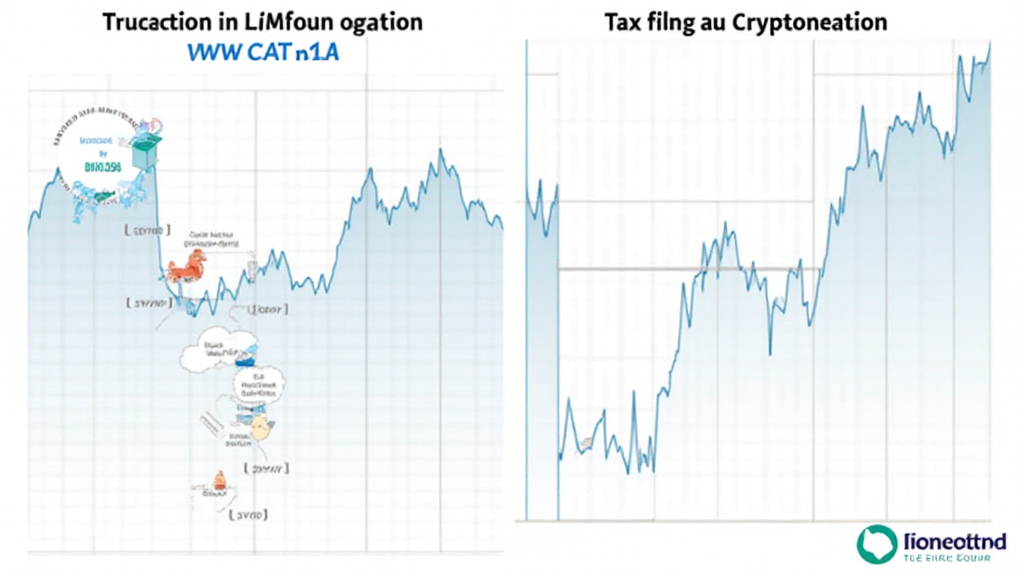2025 HIBT Vietnam Income Tax on Crypto: Understanding Your Obligations
As the crypto landscape in Vietnam continues to evolve, so do the regulations surrounding it. With an estimated 4 million active cryptocurrency users in Vietnam, the need for clear guidelines on taxation has never been more pressing. In 2024, the Vietnamese government reported a significant increase in crypto transactions, highlighting the importance of understanding your tax obligations as an individual or business involved in cryptocurrency. This article will explore the current state of HIBT Vietnam income tax on crypto, potential changes for 2025, and practical tips for compliance.
Understanding HIBT Vietnam Income Tax Regulations
In Vietnam, the taxation of cryptocurrency is primarily governed by the Law on Taxation. The Hệ thống thuế (Tax System) outlines various tax obligations, including the taxation of profits made from crypto trading. As per the existing regulations, individuals and entities involved in crypto transactions are required to report their income and pay taxes accordingly. Here’s a quick breakdown of the current taxation framework:
- Capital Gains Tax: Profits from the sale of cryptocurrency are subject to capital gains tax.
- Value Added Tax (VAT): Transactions involving cryptocurrencies may be taxable under VAT regulations.
- Personal Income Tax (PIT): For individuals, income derived from crypto trading is considered taxable income.
Vietnam’s Plan for 2025 on Cryptocurrency Taxation
Looking ahead to 2025, the Vietnamese government plans to implement more comprehensive regulations regarding the taxation of cryptocurrencies. Reports suggest that efforts will be made to harmonize Vietnam’s tax system with international standards:

- The introduction of a formal framework specifically addressing digital currencies.
- Enhanced transparency measures to ensure that crypto transactions are accurately reported.
- Potential adjustments in tax rates to stimulate growth while ensuring government revenue.
This strategic move underscores Vietnam’s commitment to fostering innovation while ensuring compliance. According to local sources, Vietnam is expected to see a 200% growth in crypto-related businesses by 2025.
Common Tax Pitfalls to Avoid for Crypto Traders in Vietnam
One of the most significant challenges for crypto traders is understanding the nuances of HIBT Vietnam income tax on crypto assets. Here are some common pitfalls that traders should avoid:
- Improper Record Keeping: Ensure that all transactions are meticulously recorded, including dates, amounts, and transaction fees.
- Failure to Report Gains: Traders must report all profitable trades, regardless of whether the gains were converted to fiat currency.
- Overlooking Deductions: Keep track of transaction fees and other expenses to accurately calculate taxable income.
Practical Steps to Comply with HIBT Regulations
Complying with HIBT Vietnamese income tax regulations involves several actionable steps. Here’s how you can get started:
- Stay Informed: Keep up to date with local regulations and any changes in the tax framework regarding cryptocurrency.
- Use Accounting Software: Consider using crypto tax software that simplifies the tracking and reporting process.
- Consult a Tax Professional: Engaging with a tax advisor familiar with cryptocurrency taxation can help mitigate risks.
As changes unfold in the coming years, it is critical for crypto investors to stay proactive in managing their tax obligations efficiently.
The Future of Crypto Taxation in Vietnam
With the proliferation of cryptocurrencies, the future of taxation in Vietnam looks set to evolve significantly. Increased digital transactions require an adaptable and robust tax framework to ensure compliance and efficiency in collection. Key trends to watch for include:
- Increased Enforcement: The government may enhance measures to track crypto transactions, ensuring adherence to tax laws.
- International Collaboration: Potentially working with other nations on best practices in tax regulations for digital currencies.
- Innovative Solutions: Exploring blockchain-based methods of reporting and collecting taxes could simplify the process.
As Vietnam positions itself as a regional leader in digital finance, understanding the implications of HIBT Vietnam income tax on crypto will be paramount for investors.
Conclusion
In summary, navigating the intricacies of HIBT Vietnam income tax on crypto requires diligence and proactive management. With ongoing developments in regulations, it’s essential for crypto users to stay updated and compliant. By understanding your obligations, you not only safeguard your investments but also contribute to the broader financial ecosystem in Vietnam. Don’t hesitate to consult with knowledgeable tax professionals to enhance your understanding of these evolving laws. For more information on crypto taxation, be sure to visit HIBT’s dedicated page.
Remember, staying informed and proactive is your best strategy. For more insights on cryptocurrency trading and tax regulations, keep following bobscoinsonline.
John Doe, a tax compliance expert with over 15 years of experience in blockchain technology and tax regulations, has published numerous articles in reputable financial journals and led audits for some of the most recognized blockchain projects globally.



